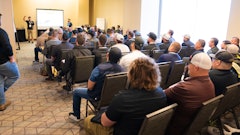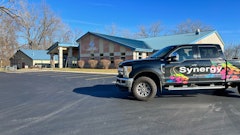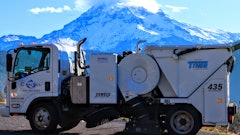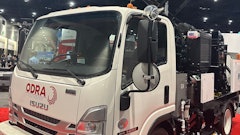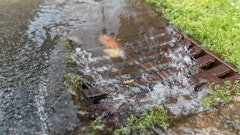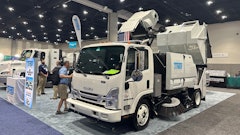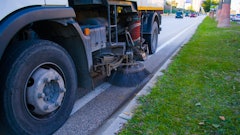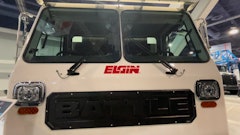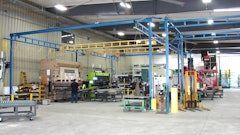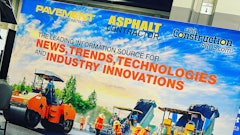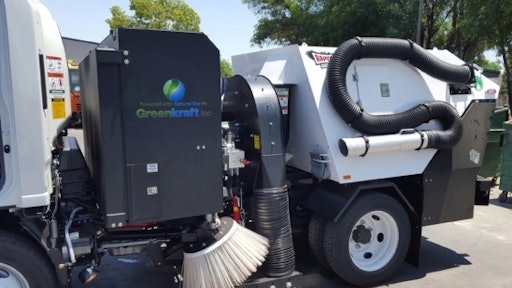
Since diesel and oil are finite resources, they are only going to get more expensive as supply continues to dwindle. This is why there has been a huge shift in the industry to find alternative ways to fuel the equipment we depend on every day to get the job done. Add to that the ever growing need to address environmental concerns and to meet Federal, State and Municipal air quality requirements, and there has also been an increasing demand for fleets to add more low emission alternative-fuel vehicles (AFVs).
Fleet owners and operators across America are turning to a wide variety of vehicles that rely on domestically produced natural gas that is both economical and clean-burning. Natural gas vehicles (NGV) use proven, reliable technology to take advantage of our country’s abundant natural gas reserves. The low cost of natural gas, combined with unprecedented public and private investment, has led to significant market growth and more vehicle and fueling options than ever before.
These natural gas systems generally comes in two forms for sweeper manufactures: CNG and LPG. The economic and environmental benefits of using natural gas are realized when using either form, but each has unique advantages that make it a better fuel for specific applications. Compressed natural gas (CNG) is made by compressing natural gas to 3,600 psi, which is then stored in high-pressure cylinders. For many applications, especially short-haul and return-to-base operations, using CNG is the preferred fuel choice.
Liquefied petroleum gas (LPG) is produced as part of natural gas processing and crude oil refining and its use can result in lower vehicle maintenance costs, lower emissions, and fuel costs savings when compared to conventional gasoline and diesel.
Recently, NiteHawk began offering a line of NGV's to their customers that can be either LPG or CNG. Customers can design their sweepers and choose the natural gas option that would best fit their needs. These systems are built, tuned and customized to run with the sweeper system the customer chooses. Currently, NiteHawk is the only sweeper manufacturer to offer LNG systems to their customers without a special order.
The sweeper manufacturer partnered with Greenkraft, a manufacturer of alternative fuel systems, to provide their natural gas system for heavy duty sweeper trucks to run on this natural gas. The trucks are designed by NiteHawk and Greenkraft manufactures the alternative fuel systems to be installed on the vehicle.
Why Natural Gas for Sweepers?
Natural gas is the cleanest burning commercially available alternative fuel today, and its use as a transportation fuel is improving the air quality and the health of communities across the country. NGVs significantly reduce greenhouse gas (GHG) emissions and other smog producing emissions when compared to gasoline and diesel vehicles.
NGVs also enjoy significant economic advantages over comparable diesel and gasoline vehicles. NGVs have a higher incremental cost due to the expense of specialized fuel systems and fuel tanks, but the low cost of natural gas fuel relative to diesel and gasoline means there is a short payback period before realizing significant savings over the lifecycle of the vehicle.
And these positive economics of NGVs are here to stay. Independent studies now show NGVs capturing significant market share of both the light and heavy duty vehicle markets. The National Petroleum Council (NPC), under an “aggressive” scenario, predicts NGVs will capture 50% of the light duty market, upwards of 35% of the Class 3 to 6 truck market, and almost 50% of the Class 7 to 8 truck market by 2050.
And why not, switching to natural gas vehicles can save fleets up to 20% on their fuel costs.
“We tend to see most people using the natural gas vehicles on the municipality side,” says Jake Hoerman with NiteHawk. “Cities, governments, airports, those kind of people are driving the natural gas trend.
“There is an overall push in the industry to have cleaner fuels from an environmental standpoint, but from a financial standpoint, a lot of times the natural gas or propane is much cheaper than gasoline or diesel fuel,” Hoerman continues. “For a contractor that can mean a lot to their bottom line.”




